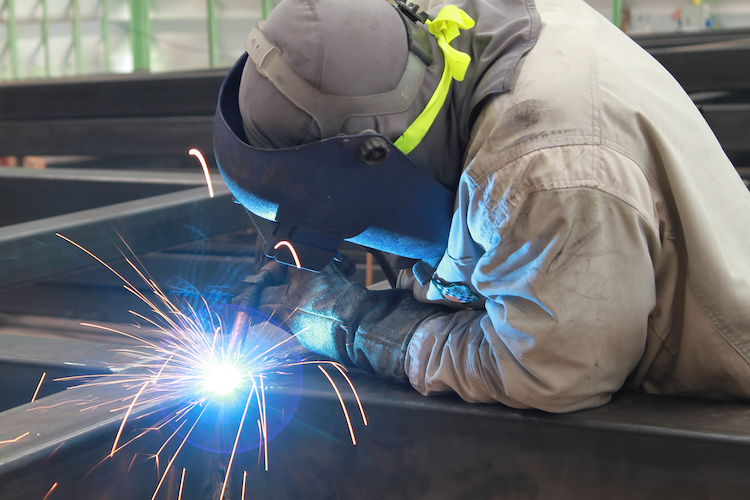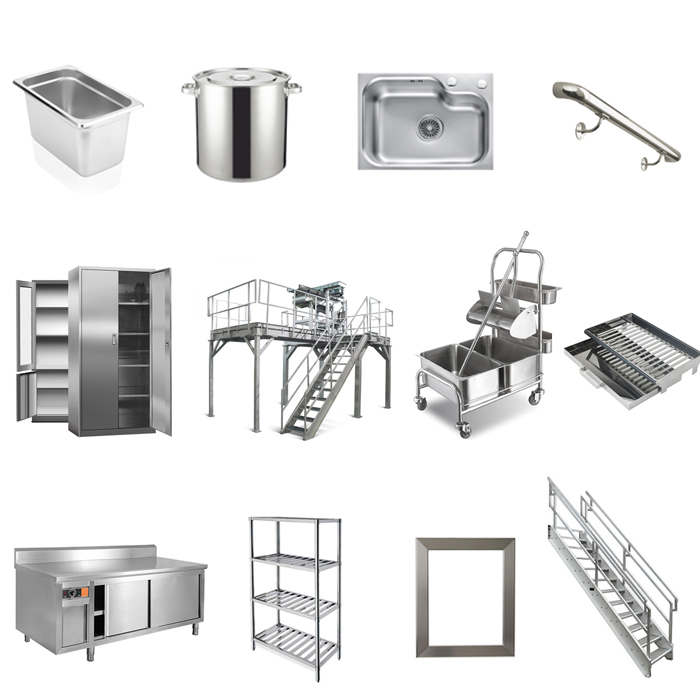Why Alpha Reo Is the Top Selection for Steel Reinforcement
Why Alpha Reo Is the Top Selection for Steel Reinforcement
Blog Article
The Ultimate Manual on Custom Steel Construction Solutions for Structural Projects
In the realm of architectural jobs, the relevance of custom-made steel manufacture options can not be overstated. From the fundamental understanding of steel construction essentials to the intricate process of selecting the most suitable materials, every action in this journey plays a crucial duty in the best success of a job.
Understanding Custom-made Steel Construction Basics
Looking into the principles of customized steel fabrication gives insight right into the elaborate process of changing raw steel into customized architectural parts. Customized steel manufacture is a customized production strategy that entails cutting, shaping, and assembling steel products to produce one-of-a-kind frameworks according to certain job demands. Comprehending the basics of custom steel fabrication is vital for ensuring the effective implementation of architectural tasks.
The procedure commonly begins with the analysis of job requirements and layout requirements. This first phase entails in-depth planning and cooperation between designers, engineers, and producers to figure out one of the most ideal strategy for making the steel components. Accuracy is essential during the construction process, as even small variances can influence the structural integrity of the last item.
Numerous techniques, such as reducing, welding, and shaping, are used to transform raw steel right into the desired architectural aspects. Knowledgeable fabricators use advanced equipment and tools to make certain precision and consistency throughout the manufacture process. Quality control procedures are implemented to verify the stability of the made components prior to they are set up on-site, making sure compliance with industry criteria and task requirements.
Choosing the Right Steel Materials

Most importantly, the kind of structural project and its particular requirements play a critical duty in establishing one of the most appropriate steel products. Factors such as the load-bearing capability, ecological conditions, and desired life-span of the structure will determine the quality and sort of steel that must be used.
Furthermore, the physical residential properties of the steel, consisting of ductility, stamina, and weldability, need to align with the project's needs to assure optimum efficiency and longevity (steel fabricators melbourne). In addition, factors to consider such as rust resistance, cost-effectiveness, and accessibility of the steel materials ought to additionally be considered throughout the choice process
Layout Factors To Consider for Architectural Jobs
Structural jobs necessitate thorough interest to design factors to consider to make certain both functionality and security are focused on throughout the building and construction procedure. When it comes to developing structural jobs, several key aspects need to be taken into account to ensure the success More Bonuses of the undertaking. By thoroughly taking into consideration these elements during the layout stage, engineers and designers can make sure the architectural project's success from perception to completion.
Enhancing Fabrication Procedures for Effectiveness

Moreover, executing lean manufacturing principles can considerably improve efficiency in steel manufacture. By reducing waste, enhancing process, and enhancing interaction between various teams included in the construction process, jobs can be finished more quickly and with greater quality requirements.
Additionally, establishing a well-organized production routine and process can aid in prioritizing tasks, assigning resources effectively, and conference job deadlines quickly. By having a clear strategy in position and routinely keeping track of progression, any possible bottlenecks or delays can be identified and attended to promptly, guaranteeing effective and smooth manufacture processes for architectural projects.
Quality Assurance and Task Management in Steel Construction
To make sure the effective execution of steel manufacture projects, careful quality assurance measures and efficient job monitoring techniques are crucial elements in preserving accuracy and meeting client expectations. Quality control in steel construction entails strenuous evaluations at numerous phases of the construction procedure to validate conformity with project specs and market criteria. This consists of product testing, dimensional checks, and weld assessments to make Get the facts certain architectural stability and safety and security.
Job monitoring plays an essential role in working with the different facets of steel fabrication jobs, such as scheduling, source allotment, and communication among employee. A well-defined task strategy with clear objectives, landmarks, and timelines helps to keep an eye on progress and address any type of prospective issues proactively. Effective communication between all stakeholders, consisting of customers, engineers, service providers, and fabricators, is important for making sure that the project advances smoothly and satisfies the wanted high quality criteria.
Conclusion
To conclude, custom steel construction plays an essential function in architectural tasks by offering customized options using the appropriate products and style considerations. Effectiveness in manufacture processes, high quality control, and efficient job management are vital for effective end results. By recognizing the essentials of custom-made steel fabrication and applying structured processes, job groups can supply top notch and sturdy frameworks that meet the certain needs of their clients.
Personalized steel construction is a specialized production technique that involves cutting, shaping, and constructing steel materials to develop special structures according to details project demands.To make sure the successful execution of steel fabrication projects, meticulous quality control measures and effective task monitoring methods are essential components in maintaining precision and conference client expectations. Quality control in steel construction involves extensive assessments at different phases of the fabrication procedure Resources to validate compliance with project requirements and market criteria (steel fabrication melbourne).Task administration plays a crucial function in coordinating the numerous aspects of steel manufacture jobs, such as scheduling, resource allocation, and interaction amongst team participants.In verdict, custom steel construction plays a vital function in architectural tasks by providing tailored solutions making use of the best materials and style considerations
Report this page